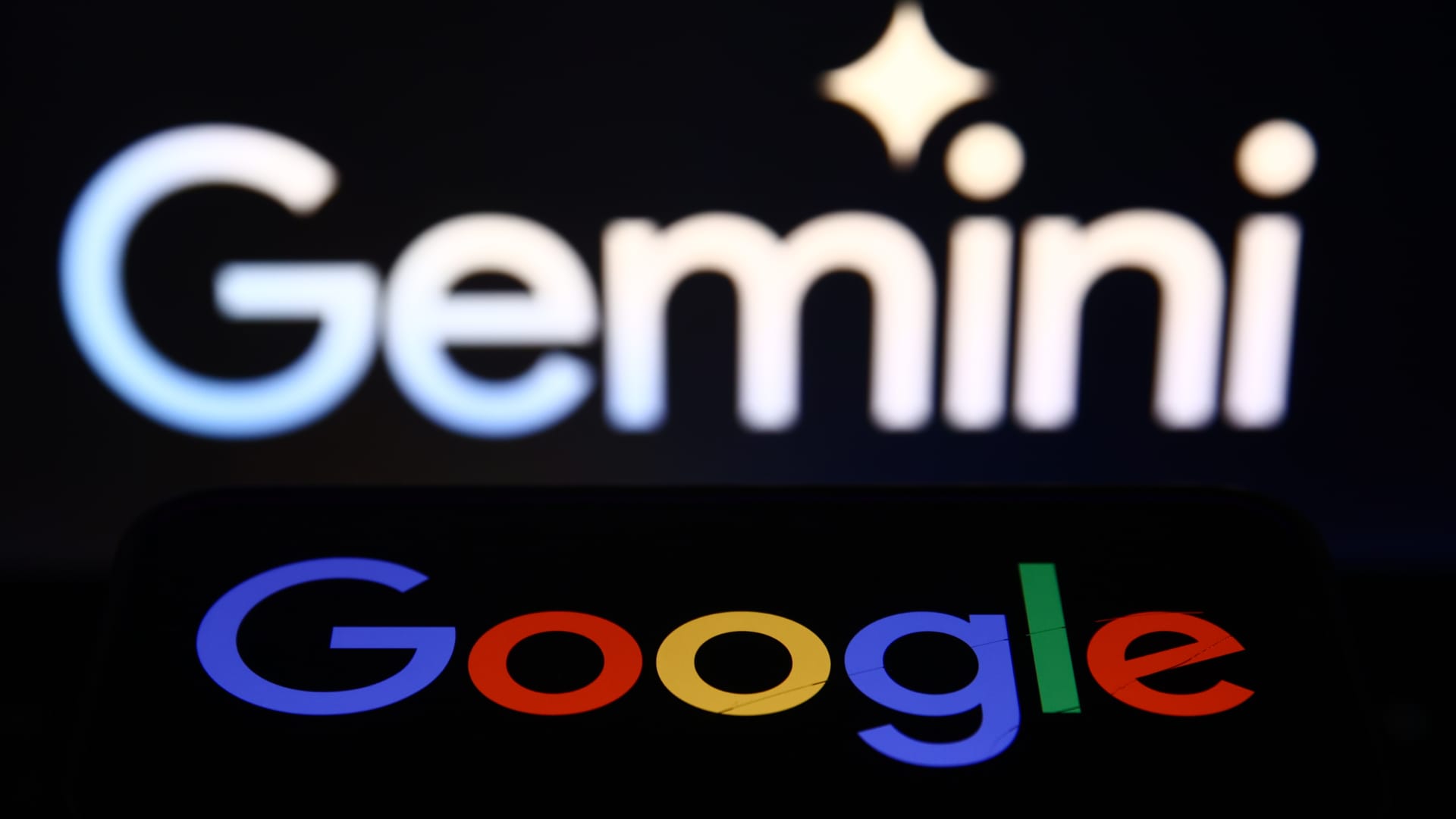
Google on Thursday announced a major rebrand of Bard, its artificial intelligence chatbot and assistant, including a fresh app and subscription options. Bard, a chief competitor to OpenAI’s ChatGPT, is now called Gemini, the same name as the suite of AI models that power the chatbot.
Google also announced new ways for consumers to access the AI tool: As of Thursday, Android users can download a new dedicated Android app for Gemini, and iPhone users can use Gemini within the Google app on iOS.
Google’s rebrand and app offerings underline the company’s commitment to pursuing — and investing heavily in — AI assistants or agents, a term often used to describe tools ranging from chatbots to coding assistants and other productivity tools.
Alphabet CEO Sundar Pichai highlighted the firm’s commitment to AI during the company’s Jan. 30 earnings call. Pichai said he eventually wants to offer an AI agent that can complete more and more tasks on a user’s behalf, including within Google Search, although he said there is “a lot of execution ahead.” Likewise, chief executives at tech giants from Microsoft to Amazon underlined their commitment to building AI agents as productivity tools.
Google’s Gemini changes are a first step to “building a true AI assistant,” Sissie Hsiao, a vice president at Google and general manager for Google Assistant and Bard, told reporters on a call Wednesday.
Google on Thursday also announced a new AI subscription option, for power users who want access to Gemini Ultra 1.0, Google’s most powerful AI model. Access costs $19.99 per month through Google One, the company’s paid storage offering. For existing Google One subscribers, that price includes the storage plans they may already be paying for. There’s also a two-month free trial available.
Thursday’s rollouts are available to users in more than 150 countries and territories, but they’re restricted to the English language for now. Google plans to expand language offerings to include Japanese and Korean soon, as well as other languages.
The Bard rebrand also affects Duet AI, Google’s former name for the “packaged AI agents” within Google Workspace and Google Cloud, which are designed to boost productivity and complete simple tasks for client companies including Wayfair, GE, Spotify and Pfizer. The tools will now be known as Gemini for Workspace and Gemini for Google Cloud.
Google One subscribers who pay for the AI subscription will also have access to Gemini’s assistant capabilities in Gmail, Docs, Sheets, Slides and Meet, executives told reporters Wednesday. Google hopes to incorporate more context into Gemini from users’ content in Gmail, Docs and Drive. For example, if you were responding to a long email thread, suggested responses would eventually take in context from both earlier messages in the thread and potentially relevant files in Google Drive.
As for the reason for the broad name change? Google’s Hsiao told reporters Wednesday that it’s about helping users understand that they’re interacting directly with the AI models that underpin the chatbot.
“Bard [was] the way to talk to our cutting-edge models, and Gemini is our cutting-edge models,” Hsiao said.
Eventually, AI agents could potentially schedule a group hangout by scanning everyone’s calendar to make sure there are no conflicts, book travel and activities, buy presents for loved ones or perform a specific job function such as outbound sales. Currently, though, the tools, including Gemini, are largely limited to tasks such as summarizing, generating to-do lists or helping to write code.
“We will again use generative AI there, particularly with our most advanced models and Bard,” Pichai said on the Jan. 30 earnings call, speaking about Google Assistant and Search. That “allows us to act more like an agent over time, if I were to think about the future and maybe go beyond answers and follow-through for users even more.”





